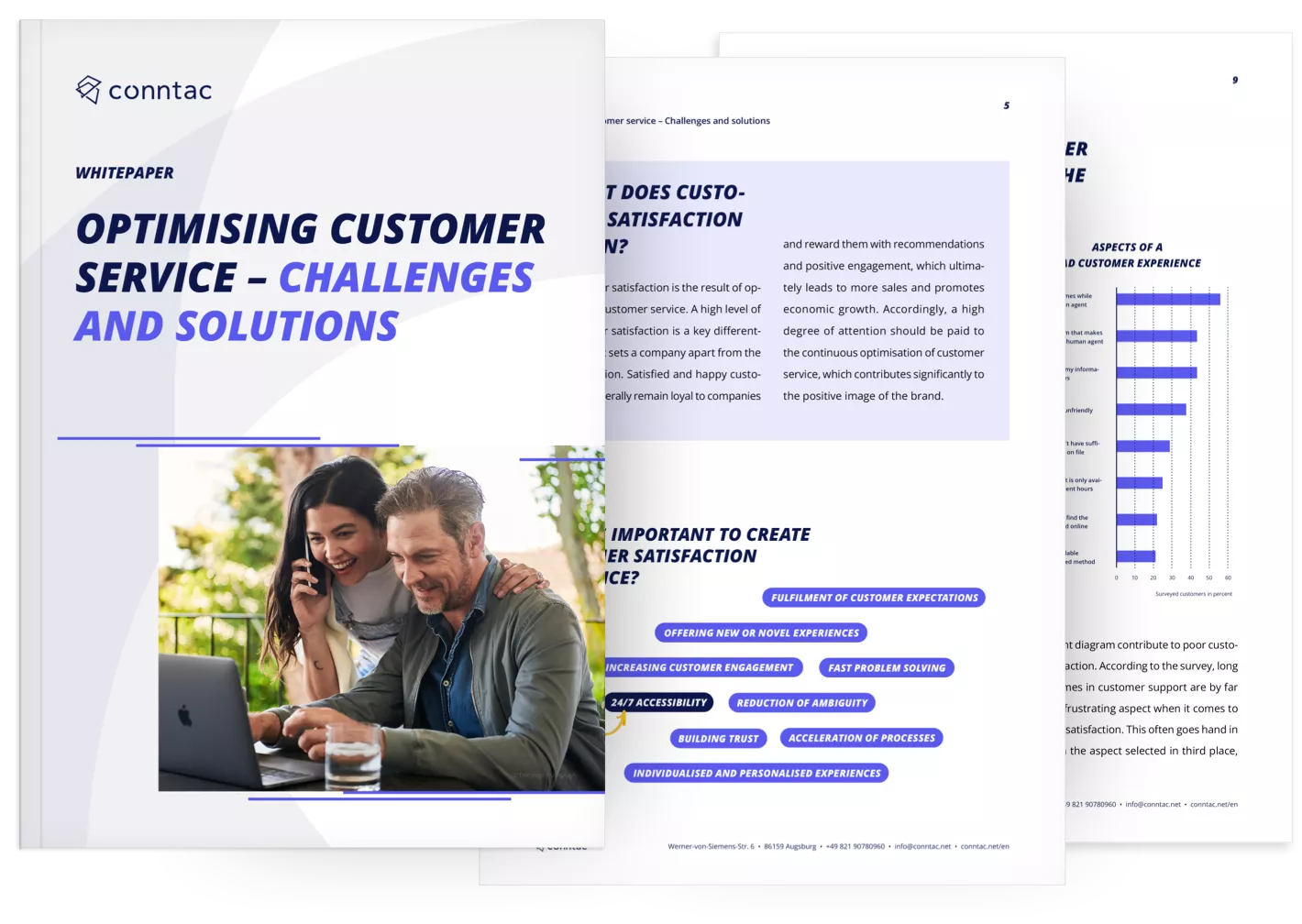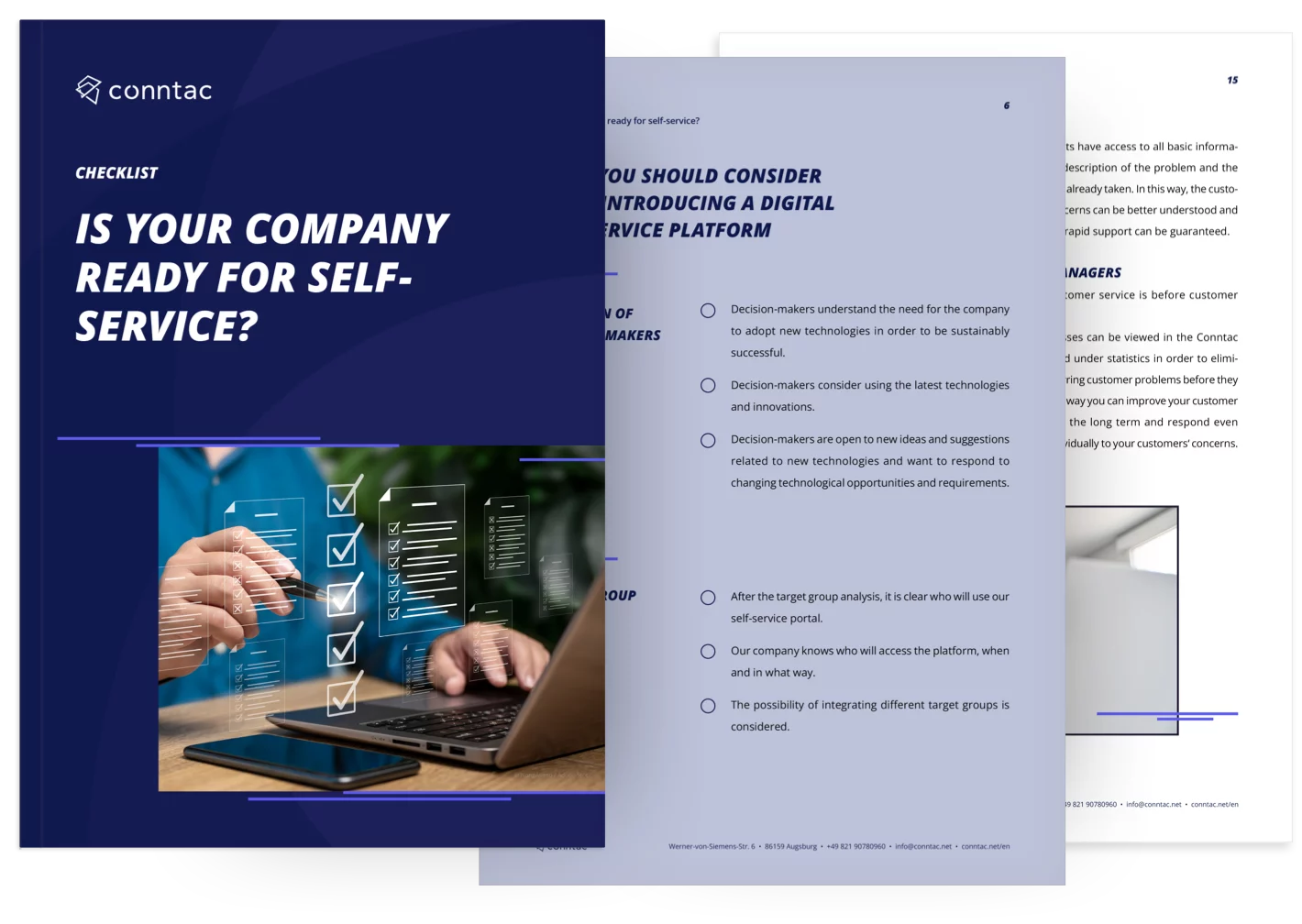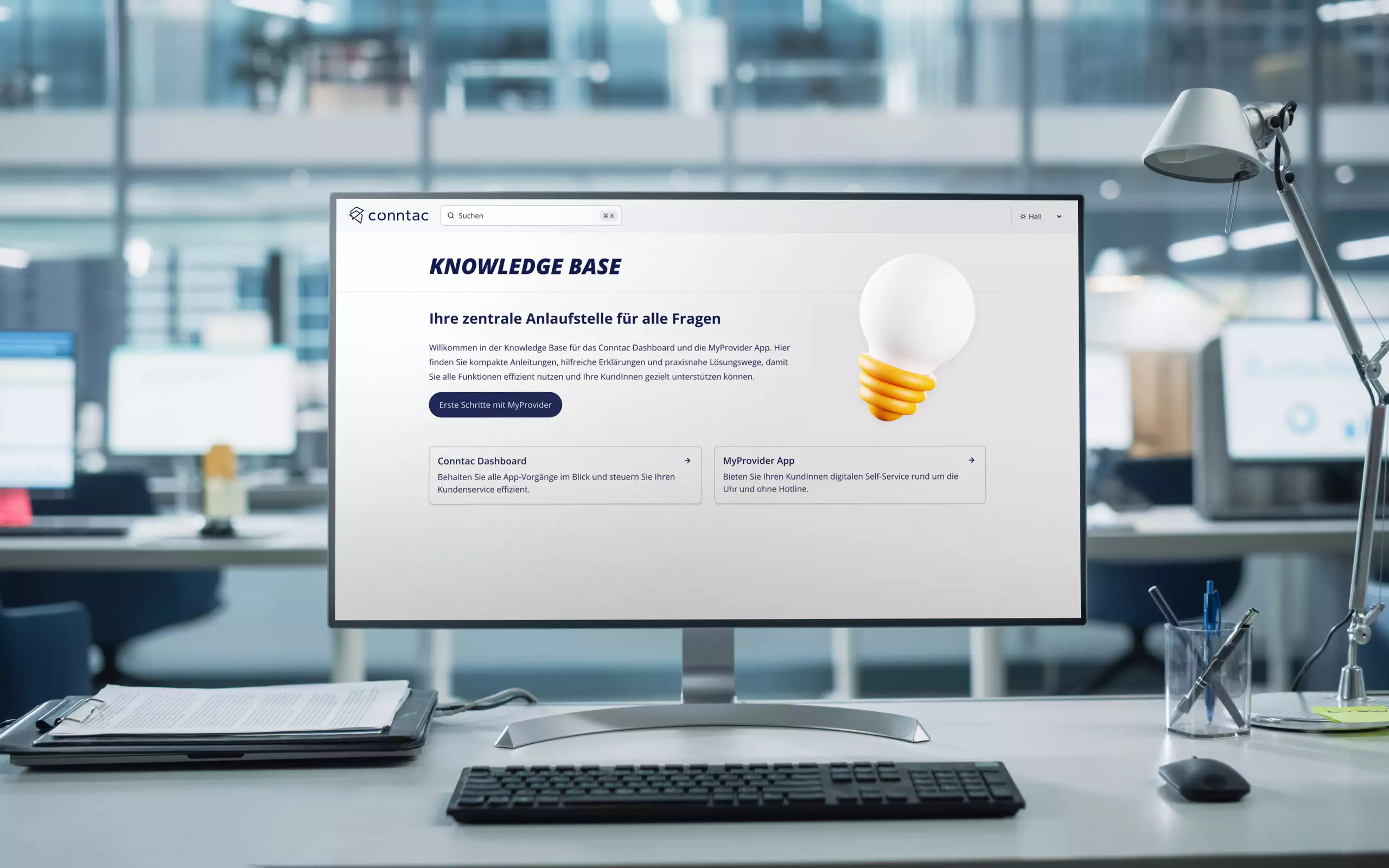In today's fast-paced world, where customer satisfaction and seamless service are critical, companies need to find innovative ways to interact with their customers. Customers who urgently need help resolving a problem with, for example, their online ordering process, are often frustrated by the long wait times on hold. This is compounded by the sometimes unclear and endless service options offered by customer support, which then leaves many feeling isolated and alone in the digital world.
Conversational Experience opens up a world of simple and natural exchange. A friendly chatbot or a tool with intelligent queries offers instant help, people can easily find their way around and receive accurate and relevant answers immediately. The interaction feels as personal as talking to human support staff. Customers feel not only understood and supported but also valued. About 70% of consumers shop more with companies that offer a seamless conversational experience, and 64% spend more when their problems are solved immediately¹.
Is Conversational Experience the new standard in customer service and do companies that rely on this innovative way of communicating have a decisive competitive advantage?
What is Conversational Experience anyway?
Let's first clarify the basics. Conversational User Experience (CUX) is an umbrella term for chatbots, messenger bots, voice bots and assistants. The goal of CUX is to make the interaction between humans and computers as similar as possible to a human conversation with the help of speech-based technology. Conversational Experience is therefore the interaction between consumers and businesses where a smooth and natural conversation is enabled. These interactions can take place with both AI-driven bots and human support staff and can take place through various channels such as messaging, phone calls or face-to-face meetings. The goal of Conversational Experience is to provide consumers with an enjoyable and effective way to communicate with businesses, where they are in full control and their needs and concerns are met in a simple and satisfying way. Above all, customers want help that does not interfere with what they are doing. Interactions should be natural, personable and personal. Customers expect that all contacts in the company know the full context, including purchase history and previous interactions.
Conversational Experience - the new standard?
Immediate help and personal interaction
Customers expect immediate help, regardless of whether an AI-controlled bot or human support staff is on duty. Interactions should be natural, personable and personal to create a positive customer experience.
Seamless transitions and full context
Customers want interactions to be seamless and for all support staff to know the full context. They should be able to pause a conversation and continue later with other well-informed support staff.
Simplicity as a link between physical and digital experience
Customers expect the transition from physical to digital experience to be fluid. Companies need to offer their customers a simple solution, whether it is a problem in the online shopping cart or other concerns.
Customer expectations of conversational service¹
72% of customers want immediate service
71% prefer natural, conversational interaction
70% expect all contacts to know the full context
66% do not want interactions to interrupt what they are doing
62% think that the transition between physical and digital experiences should be fluid.
Also of interest to you: just recently we tackled customer expectations for telcos in a blog post.
Companies need to catch up and seize opportunities
Unmet customer expectations mean missed opportunities
Customers complain that their interaction with support interferes with their current tasks and that it is not possible to pause a conversation and continue it later with equally well-informed support staff. Companies that fail to meet these expectations miss important opportunities.
Customer loyalty and increased sales through seamless conversational experience
Companies that offer seamless conversational experiences can benefit from stronger customer relationships and increased sales. Customers are more likely to buy from companies that solve their problems immediately and provide a positive customer experience.












